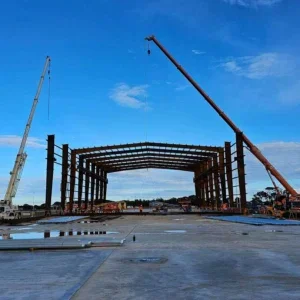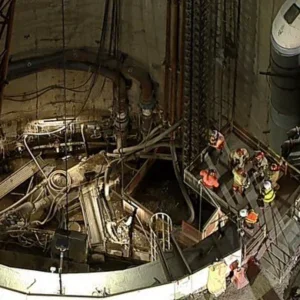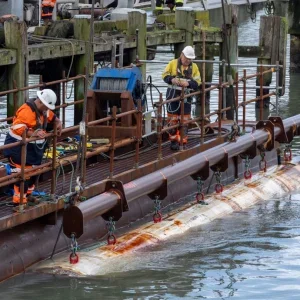Metro Vancouver has a contractor prequalification process underway at the stalled Seymour-Capilano project, in Canada, to finish the interrupted excavation while Bilfinger Berger – which saw its contract terminated over a tunnelling dispute – has launched a counter lawsuit against the client, Hatch Mott MacDonald (HMM) and a local authority.
The client plans to restart excavation of the twin tunnels on for the raw and treated water transfer scheme. When it terminated the right of Bilfinger Berger to continue with the contract, in May, approximately 55% of the 7.1km bores had been excavated. It said approximately 3km remains to be driven in each tunnel, mostly in granite.
At present, the equipment on site and the tunnels are being maintained by Procon Mining, which was hired by the client immediately upon it ending the contract with Bilfinger Berger.
Metro Vancouver has requested qualifications from 15 firms that have expressed interest in undertaking the works, and it led a surface-only site visit on 28 July. Discussions are underway on the type of contract and payment basis for the works, the client said.
It added that interested firms would receive general geological information from the original contract plus selected contractor drawings for the prequalification stage. More detailed information is to be given to shortlisted firms. HMM continues to serve the client on the project. Deadline for submissions is mid-August and the client hopes work can resume with a new contractor near the end of the year.
Bilfinger Berger suspended part of its tunnelling work in January over safety concerns caused by unexpected high insitu rock stress, which it claims meant the open TBMs and support system was unsuitable for those sections of undetermined length. It has countersued with claims there was no warning of such conditions in the bid documents. It added that the client had sole responsibility to provide a safe, viable design for tunnelling and support works, and that Metro Vancouver also took the geological risk on the project.
The contractor claims that proposals produced for the client by HMM for adjustments to the tunnelling and support were not properly authorised to enable contractual execution, and payment and programme consequences were not allowed for. It further adds that while the contract allows also for mediation this was not activated prior to the client terminating the contract and taking possession of its equipment and materials on site, including a pair of Robbins TBMs.
A lawsuit was then brought at the Supreme Court of British Columbia by The Greater Vancouver Water District, which together with some associated Greater Vancouver authorities operate jointly as Metro Vancouver. The suit was brought against the contractor: Bilfinger Berger AG and its subsidiaries Bilfinger Berger (Canada) and Fru-Con Construction, and the subsidiaries JV on the project (T&TI, June, p7).
In a countersuit, submitted in late June, the contractor has made claims jointly and severally against the client, HMM and North Vancouver, the landowner. The financial claims are unspecified as required by local law but it also has claim of Builders’ Lien for Can$22.5M (US$21.3M) against outstanding invoices for the cost of labour, equipment and materials over January-May to maintain its capability to resume works. In addition, it expects its own and leased assets on site to be maintained before return, and said their value is more than Can$35M (US$33.2M) including Can$16M (US$15.2M) for the TBMs.
No date for the case has yet been set.
Bilfinger bid for the contract in August 2004 and was awarded a final lump sum contract of Can$103.4M (US$78.3M-2004 rates). It said the client’s estimated was just under. Nearest bids were Can$186M from Frontier Kemper/Aecon/Shea and Can$237M from Kiewit.







